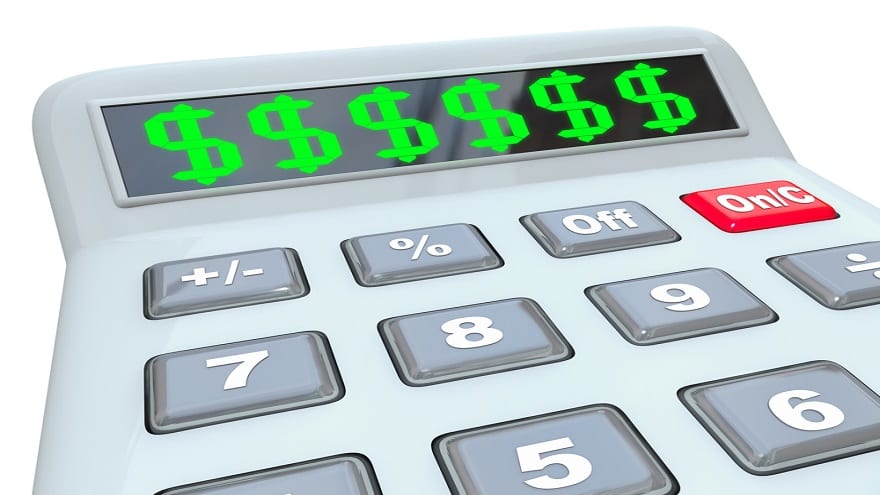What is the Cost of Probate?

Probate is the legal process that ensures your debts are paid and legal title of your assets is transferred to the appropriate heirs and beneficiaries. If you have a will, the probate process determines whether the will is authentic and valid. Probate is required for all estates, whether or not you have a will, though not everything you own has to go through probate.
The cost of probate varies with several factors. Each state or locality determines its own probate costs and process, and these are the major factor in the cost of probate. Other key factors are the value of your estate and whether there are challenges to your will or other issues in dispute during probate.
Some probate costs are fixed dollar amounts while others are a percentage of the estate. A few costs, such as attorney’s fees and executor’s fees, depend on the amount of time probate takes. Average probate costs are the U.S. are estimated to vary between 1% and 7% of the value of the estate.
The more valuable the estate is, the lower the costs are likely to be as a percentage of the estate. That’s because the fixed dollar costs are a lower percentage of the estate’s value. The longer the probate process drags on, the more expensive the costs of probate will be.
Costs of Probate: Court Fees
Court fees are determined by the state or locality where probate is filed. The fees can range from a nominal amount to a thousand dollars or more. Sometimes the court fees are a percentage of the estate’s value, with the percentage declining as the value increases. The amount also might vary with the complexity of the estate. For example, as more forms must be filed or court sessions must be held, the more court fees will be incurred.
Costs of Probate: Executor Fees
Executor fees can vary considerably. In many estates, a friend or family member serves as executor and waives the fees. When an executor is compensated, many states have established executor fee schedules. For example, California sets the executor fees at four percent of the first $100,000 of the estate, three percent of the next $100,000, two percent of the next $800,000, and so on. Some other states merely set a minimum or maximum fee level. Many states allow you to determine the maximum executor fees in your will, provide that executor fees will be waived, or negotiate fees in advance with your executor.
Costs of Probate: Attorney Fees
These fees also can be established by state law similar to the way executor fees are. Often, established attorney’s fees are a percentage of the estate’s value on a sliding scale with the percentage declining as the estate’s value increases. But the attorney’s fees usually can be negotiated, and many attorneys will charge an hourly rate or set fee. Many estates don’t need an attorney to be involved in the probate process, so your estate might not incur this cost.
Costs of Probate: Bond Fees
The executor might have to post a probate bond early in the probate process. A probate bond insures the beneficiaries and creditors by promising to compensate them for any losses they incur because of errors in the probate and distribution process.
The probate court usually determines the amount of any bond that must be posted. The cost of the bond usually is paid to a private bonding company, and often is paid by the estate, not the executor.
You can state in your last will and testament that a probate bond is waived. The probate court, however, can overrule the waiver and require a bond to be posted to protect beneficiaries or creditors.
Costs of Probate: Appraisal and Business Valuation Fees
Part of the probate process is for the executor to prepare an inventory of the estate’s assets, including estimates of each asset’s value. Often the value can be estimated by the executor, such as for household furnishing and personal items. Other times the value can be determined from public sources, such as the values of publicly-traded stocks and mutual funds.
But some assets require professional appraisals, such as small businesses, real estate, art, and collectibles. The appraisal fees can vary considerably, depending on the type of asset and its value.
Costs of Probate: Creditor Notice Fees
The state may require that the executor post a notice to creditors in local newspapers or online. The cost varies and is established by the newspaper or other entity in which the notice is published.
Costs of Probate: Miscellaneous Fees
There might be additional costs incurred. These can include postage, delivery services, and telephone charges. Also, items in the estate might have to be stored, insured, or shipped. In some estates, the executor has to travel as part of the duties or hire experts. These costs will vary with the composition of your estate, where the beneficiaries are located, and other factors.
The costs discussed here are those related to the probate process and distribution of the assets. Your estate also might have to pay debts you incurred. The estate might owe federal, state, and local taxes that aren’t related to probate. The estate also is likely to pay other costs, such as the utilities and maintenance costs of your home while the estate is being settled.
Valuable contributions to this summary of “What is the Cost of Probate?” were made by Bob Carlson, editor of the Retirement Watch financial advisory service and chairman of the Board of Trustees of Virginia’s Fairfax County Employees’ Retirement System with more than $4 billion in assets.
Katie Kao is an editorial intern with Eagle Financial Publications.




